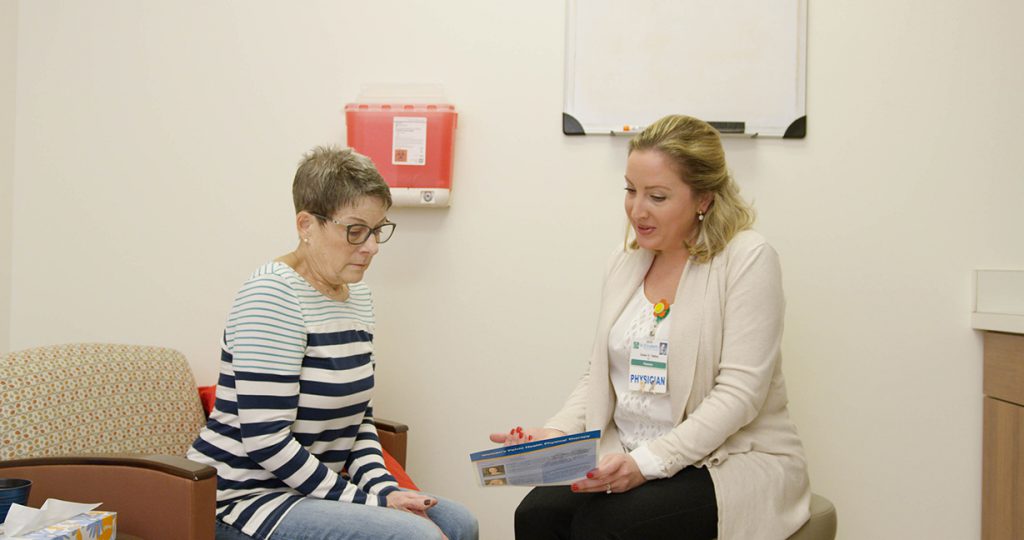Did you know that one out of four women over the age of 20* struggle with a pelvic floor disorder? Often, women suffer in silence, dismissing their issues as normal or just part of aging.
[* source: American Urogynecologic Society]
The urogynecology specialists at St. Elizabeth Physicians want you to know that while it’s common to have these problems, it’s not normal – and in many cases, it can be easily fixed.
What are Pelvic Floor Disorders?
Pelvic floor disorders are an encompassing group of conditions that affect the pelvic floor. The most common pelvic floor disorders include:
- Urinary incontinence
- Fecal incontinence
- Vaginal prolapse
- Pelvic pain
The cause for pelvic floor disorders varies and oftentimes is a combination of age and genetics. Pregnancy/delivery and menopause can also cause pelvic floor disorders.
Pelvic floor disorders occur between the pubic bone and the tailbone. The muscles and ligaments in the pelvic floor support all of your pelvic organs, including reproductive organs and the bladder. Over time – or as the result of pregnancy – the pelvic floor can get weak and stretchy, eventually collapsing and causing a host of symptoms like pain and loss of bladder and bowel control.
Pelvic Floor Disorders Don’t Have to be Permanent
The good news? According to Dr. Susan Oakley, Urogynecologist at St. Elizabeth Physicians, pelvic floor disorders don’t have to be permanent.
“There are lots of really great treatments for pelvic floor disorders,” says Dr. Oakley. “You don’t need surgery to fix this! We have lots of surgical and non-surgical options to offer our patients.”
Dr. Oakley and the team of specialized Urogynecologists at St. Elizabeth will evaluate your symptoms and design a treatment plan specifically for you.
“When determining the treatment program for a patient, we make sure to keep their needs and desires front and center,” says Dr. Oakley. “We want to get you back to your regular life as quickly as possible, and that starts with listening closely to what our patients want.”
The least invasive and most common treatment option for pelvic floor disorders is specialized pelvic floor physical therapy. You’ll work one-on-one with a certified Physical Therapist at St. Elizabeth who will work with you to strengthen your pelvic floor muscle.
Many active women struggle with urinary incontinence – it’s a struggle whether you are taking a run, lifting weights or simply picking something up off the floor. Pelvic floor physical therapy can help to relax and strengthen the pelvic floor muscles, helping you learn to engage them during everyday activities.
Urogynecologists: We Can Help
At St. Elizabeth, we are here for you every step of the way on your healthcare journey. You don’t have to live with your pelvic floor disorder – help is out there, just a phone call away. We can help you take the first step toward taking control of your pelvic floor disorder instead of letting it control you. Make an appointment with our friendly staff by calling (859) 757-2132 or visiting St. Elizabeth Urogynecology.

